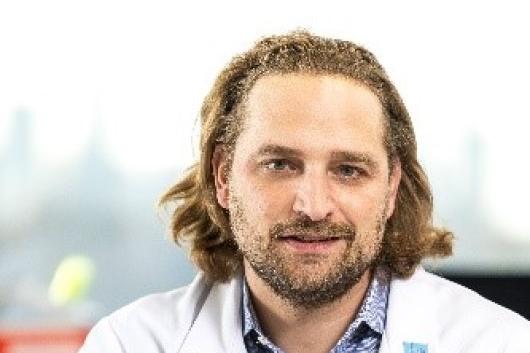
Speaker
The advent of personalized oncology provided the promise of using a patient's genetic information to give us therapeutic strategies tailored specifically to them. While this has provided a number of successes for patients with specific, actionable mutations, the reach has been limited, with estimates as low as 10% of patients receiving truly personalized care based on their genomics. I will provide a roadmap to using a combination of experimental and publicly available gene expression data, together with phenotypic measures, to derive gene signatures predictive of therapeutic response for any patient. Using, as examples, signatures predictive of radiation therapy and cisplatin response (commonly prescribed agents in oncology), I will provide a road map for a future where we can treat every patient with the drugs and radiation that best suit their specific tumor, rather than using one-size-fits-all therapy based on large clinical trials.
This will focus on two papers in Lancet Oncology:
- Pan-cancer prediction of radiotherapy benefit using genomic-adjusted radiation dose (GARD): a cohort-based pooled analysis, Scott et al., Lancet Oncology 2021 https://www.thelancet.com/journals/lanonc/article/PIIS1470-2045(21)0034…
- A genome-based model for adjusting radiotherapy dose (GARD): a retrospective, cohort-based study, Scott et al., Lancet Oncology 2017 https://www.sciencedirect.com/science/article/pii/S1470204516306489?via…
and a preprint (in revisions at npj Precision Oncology):
- Exploiting convergent evolution to derive a pan-cancer cisplatin response gene expression signature, https://www.medrxiv.org/content/10.1101/2021.11.10.21265799v2
Jacob Scott is a veteran of the US Navy submarine force turned academic physician-scientist. His lab pursues research decomposing the complexity of cancer through mathematical modeling and the biological and clinical validation of these models. With an educational background in physics, medicine, mathematics and engineering Jake has a unique perspective on cancer and systems biology and communicates and collaborates with professionals across many disciplines. After medical school at Case Western Reserve University, Jake pursued a residency in Radiation Oncology at Moffitt Cancer Center and a PhD in mathematical biology at the University of Oxford, where his thesis focused on the role of heterogeneity and evolution, both genetic and microenvironmental, on cancer evolution and radiation response.